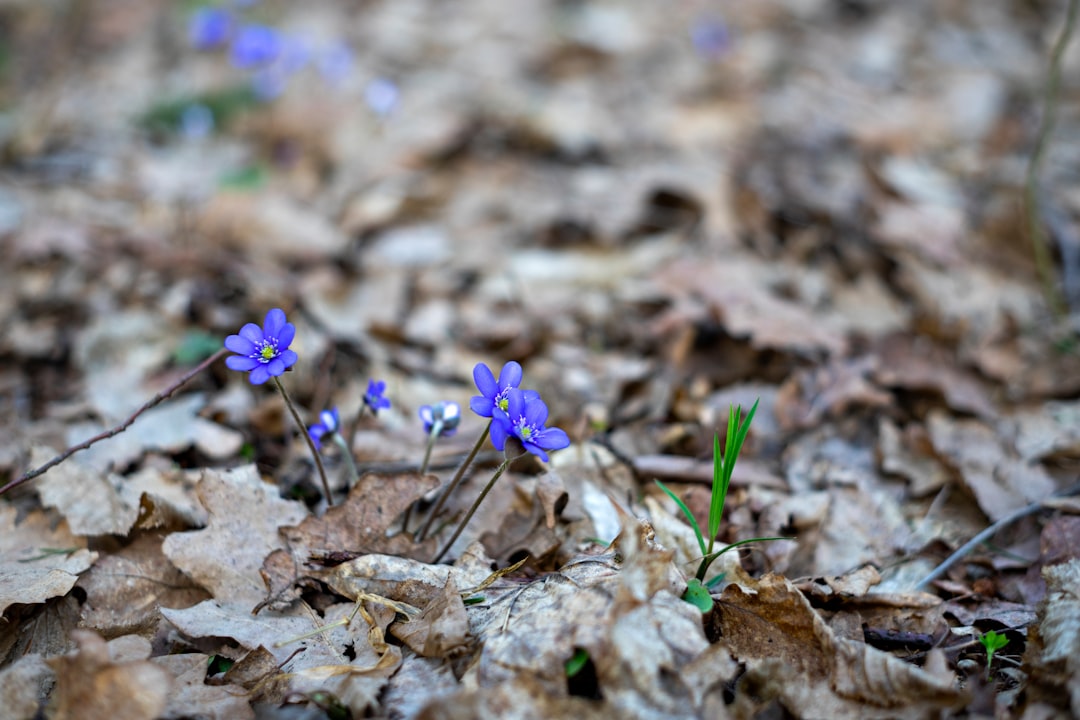I was pleased to note yesterday that Valentine’s Day had expanded its reach beyond the traditional Boy Meets Girl. Love and its companion joy in all their variations have found their way in among the cupids and assorted chocolates. In a meditation sangha in Placerville, California, we decided to study joy. No one knew what it was. It was like investigating the color of air. There were seven or eight of us sitting in a room above a winery, all blonde wood embedded in acres of grapevine. We had misgivings. How could we study something we couldn’t identify, measure, distinguish from anything else? Was it different from greeting card happiness? Was it an exalted state or an altogether ordinary one once you got the hang of it? Then someone said she thought it was presence. I thought of the dime-sized purplish first flower of spring I saw off the rail trail on February 9th and I knew that she knew something. Deep calls to deep, the Psalmist says. The flower - blink and you miss it - filled us with something you might reasonably call rapture. A flower so early in the year by New England or Minnesota standards. The willingness of it, the bravery, the generosity. Frank and I stopped to say a shechechyanu, the Hebrew prayer offered on the occasion of a remarkable appearance or a first something…..a rainbow, a baby’s primal cry. Shechechyanu is a prayer of gratitude for the blessing of being alive in the moment when such a miracle takes place. Maybe the idea is to grow in presence, so that every moment, however mundane or unpleasant, deserves a prayer. It’s a reach, but it’s a worthy intention.

The thing about presence is it doesn’t pick and choose. It doesn’t distinguish between purple flowers and disappointment or loneliness. If joy is being present to what unfolds, then it clearly has nothing to do with sentimentality of the warm puppy variety. Some of - much of? - what we’re called to be present to is happening in Turkey and Memphis and Bakhmut, in the struggles of dear friends with medical issues, and in our own lives. Joy seems to be the recognition of life itself and is, of necessity, experienced by a living being. This being - you, me - is a vibrating mechanism that receives what the Universe is dishing out and returns it. When we are present that giving and receiving flows back and forth unimpeded. It’s an antiphonal chorus, call and response. In order to hear what’s being “said” and be able to respond with an open heart, we have to care for the vibrating instrument. If there’s a loud, critical voice in my head, I can’t hear the music and I forget my part.
When I was about eleven, I was the last student to play the piano at the music school recital. Dare I say it, the best was saved for last. My mother sat in the audience beaming in expectation. I waited proudly and anxiously through all the pieces played by the younger children until it was my turn. But when I walked up to the instrument to play the Clementi Sonatina, I not only couldn’t play it from memory, I couldn’t read the sheet music. The eighth notes looked like hieroglyphics. I couldn’t play it at all. It was as if I didn’t know who I was and what I was supposed to do. I didn’t have enough love for myself to hear the music, much less play it for the people sitting on the metal folding chairs.
When I look up synonyms for self-love, I get a variety of unflattering words, words filled with pain like narcissism, vanity. I’m struck once again by the limits of our language as I was in my recent Substack about mudita, the Pali word for feeling joyful when other people are fortunate. Why is there no ordinary English word for a feeling of affection, of wholeness, of intimacy with oneself? Is it possible that this is what some people mean when they say that God loves them? Is it possible that that’s the language we turn to in order to give ourselves permission to be at ease in the world? It feels sacrilegious to write that, even though, I assure you we didn’t talk about God’s love on the Upper West Side. Still, if it’s true as I’ve been suggesting that the word presence is a way of describing being co-existent with the Universe, then we are the air we breathe, even if we can’t be sure of its color. We are the holy energy that loves us, in Hebrew ahavah rabbah ahavtanu. We are loved with an unending love. This is not vanity. This is joy. This is belonging.

I am pleased to announce that beginning on February 26, paid subscribers to seventysomething will have access to a new feature, Many Voices, which will appear on the last Sunday of each month. Many Voices will be a forum for paid subscribers to publish writing of their own in the area of “memory, aging in amazement, and the inner life” and to share responses to that work. Upgrade to a paid subscription in February to read Signe Schaefer’s writing on human development in mutuality with others.
Copies of my 2019 essay collection, Twilight Time: Aging in Amazement, are available directly from me (signed) or from Amazon or your local bookseller.




That’s exactly what the monk said, that feeling guilt without knowing what to apologize for, and thinking you are less than others is a terrible—and false—emotional burden.
I remember listening to a talk by a Buddhist monk sent from India to the US to teach. He said the English words/concepts he found the hardest to understand were “guilt” and low self-esteem.